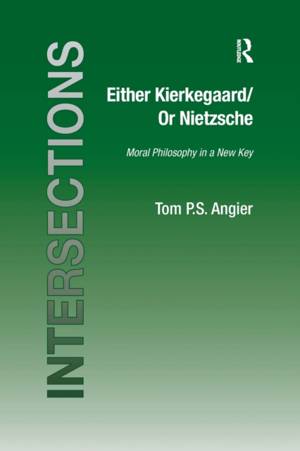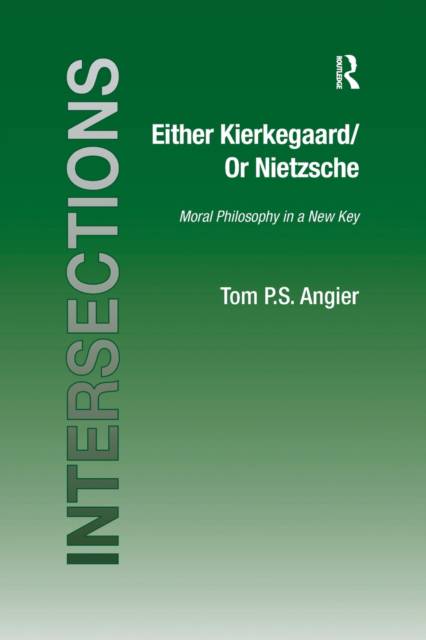
Bedankt voor het vertrouwen het afgelopen jaar! Om jou te bedanken bieden we GRATIS verzending (in België) aan op alles gedurende de hele maand januari.
- Afhalen na 1 uur in een winkel met voorraad
- In januari gratis thuislevering in België
- Ruim aanbod met 7 miljoen producten
Bedankt voor het vertrouwen het afgelopen jaar! Om jou te bedanken bieden we GRATIS verzending (in België) aan op alles gedurende de hele maand januari.
- Afhalen na 1 uur in een winkel met voorraad
- In januari gratis thuislevering in België
- Ruim aanbod met 7 miljoen producten
Zoeken
€ 106,95
+ 213 punten
Uitvoering
Omschrijving
Arguably SÃ, ren Kierkegaard and Friedrich Nietzsche are the two most significant moral philosophers of the nineteenth century, their works showing a remarkably trenchant and penetrating awareness of key ethical issues, while demonstrating a stylistic flair that is rare in philosophical writing. Angier argues that, despite the perceived stylistic opacity of these thinkers, their work does admit of comparison and rigorous analytic scrutiny which in turn yields new and significant insights into their philosophy. In this book Angier expounds the view that Kierkegaard both anticipated, and subjected to detailed critique, Nietzsche's central arguments in moral philosophy, exposing the weaknesses of what were to become the core Nietzschean positions and realizing the powerful attraction for people that these ideas would have. Angier brings this critique to our modern attention and defends the prefigured Kierkegaardian critique of Nietzsche.
Specificaties
Betrokkenen
- Auteur(s):
- Uitgeverij:
Inhoud
- Aantal bladzijden:
- 176
- Taal:
- Engels
- Reeks:
Eigenschappen
- Productcode (EAN):
- 9781138257627
- Verschijningsdatum:
- 28/11/2016
- Uitvoering:
- Paperback
- Formaat:
- Trade paperback (VS)
- Afmetingen:
- 156 mm x 234 mm
- Gewicht:
- 254 g

Alleen bij Standaard Boekhandel
+ 213 punten op je klantenkaart van Standaard Boekhandel
Beoordelingen
We publiceren alleen reviews die voldoen aan de voorwaarden voor reviews. Bekijk onze voorwaarden voor reviews.









